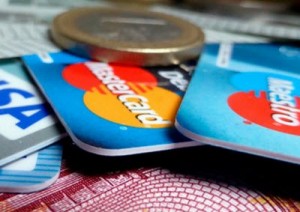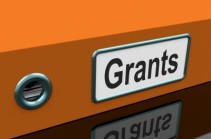Credit Cards for People on Benefits
 When you are low on cash, having credit cards available can feel like a handy tool. Credit cards can be useful for emergencies or any situations where you are short of cash. There are many other instances where credit cards can be important, such as – booking trips, purchasing online, car hire and more. Whilst credit cards can be useful, they can also be dangerous for some.
When you are low on cash, having credit cards available can feel like a handy tool. Credit cards can be useful for emergencies or any situations where you are short of cash. There are many other instances where credit cards can be important, such as – booking trips, purchasing online, car hire and more. Whilst credit cards can be useful, they can also be dangerous for some.
A note of caution: Using credit cards can be a dangerous game, especially if you are living on a limited income or relying on government benefits to get by.
Credit cards can be a great way to build a credit history and earn points, if and only if you are able to pay the balance off in full. If you only make minimum payments you face compound interest and fees. Before you decide to see if you qualify for a credit card, make sure you have the discipline, and ability, to pay the balance off.
Qualifying for Credit Cards when on Benefits:
One of the major requirements for qualifying for a credit card is having the income to make repayments every month. Credit card companies may not include benefits from the government toward your monthly income. This may result in higher interest rates or lower credit options if you do qualify.
To help increase your chances of qualifying for a credit card while you are receiving government benefits, there are a few things you can do. Improving other areas of your financial health will go a long way towards proving you are financially responsible and a good candidate for credit.
Pay your bills on time: When you apply for a credit card, the bank will check your credit report. Thirty-five percent of your credit score is based on your payment history. That’s over a third of your total score! If you routinely pay your bills late or skip payments, you’re score is going to dip and you will be far less likely to get approved for a credit card.
Use less credit: Credit card companies do not want to look at your credit report and see that you are maxing out your credit cards/loans and other debts every month. This is a major red flag and indicates that you are a risk to the lender. You should aim to use less than 30 percent of your total credit to avoid dinging your credit.
Additionally, when you pay off debts, you may not want to close your accounts because closing the accounts deletes credit and raises the percentage of credit you are using. Keeping accounts open will also impact the length of your credit history, which factors into about 15 percent of your total score.
A key phrase you will hear is debt-to-income ratio. This ratio refers to the amount of debt you have compared to the amount of money you make. Ideally, debt payments should be less than 20 percent of your income. So if you bring home $2000 a month, debt payments should be $400 or less. Make more money or have less debt to improve your ratio.
Finding the Right Cards:
Once you’ve determined that you are likely to still qualify for a credit card with your lower income, your next decision will be to find the right credit card. There are a few things to keep in mind when finding the right credit card, particularly because you are making less money:
Fees: Some credit cards offer more benefits at a cost. Some of the more expensive cards can cost you upwards of $75 or more per year… just to have the card in your wallet. Avoid credit cards that require you to pay a fee. If you are using the card as an emergency fund, you don’t need the extra perks these cards offer anyway.
Interest rates, late fees etc.: When you get a credit card application, look on the back. There should be a box telling you everything you need to know about the card, including how much you can expect to pay in interest rates and late fees. Many credit cards offer rates close to 24 percent. If you have a good credit score, shoot for close to 12 or 15 percent maximum. You may also see cards offering credit to anyone, no matter what type of credit you have. Some of these cards charge you up to 50 percent interest for every month you hold a balance. Avoid these. You’re better off paying a few bills late than you will be paying the astronomical interest rates on these cards.
One thing to understand about credit cards is how they compute your balance. Most credit cards use APR (Average Daily Balance). To determine your payment, the lender takes your daily balances, adds them together and divides them by the days in the billing cycle. Some credit cards use two billing cycles, but this will cost you more money so look for a card that uses APR.
All credit cards will charge you a late fee for not paying your bill on time. Most of these average about $35. Don’t forget to pay attention to fees for going over your allowed balance and for withdrawing cash from an ATM. If you are going to use a credit card, you are better off swiping the card than taking cash out, in regards to fees.
Incentives: Some credit cards offer 0 percent interest for the first year. This can be an effective way to pay off debt with no interest, if you pay the balance off every single month. You may also be able to access special coupons, programs or flight points with some credit cards. The incentives should be one of the last things you consider, because they do not outweigh good interest rates and lower fees in most cases. Again, do not pay for a card to offer you incentives. There are plenty of cards that will offer them to you for free.
When you have a limited income, using a credit card can feel like a relief. However, if you use it irresponsibly you will end up in more financial trouble than you already are. If you opt for a credit card, make sure you can pay it off every month or store it away for emergency use only.
Credit Card Options for People on Benefits or with Bad Credit
Debit Credit Card: If your sole income is from benefits and or you have bad credit, this may be your best option for quick approval. These cards are simply modified debit cards, which can pose as a credit card. This is ideal for car rentals, holding deposits for purchases that require credit cards or any other instances where a credit card is required for purchase. The catch is that the funds available are what you have in your savings account; it is not a true line of credit or unsecure funds.
Prepaid Credit Card: If you have issues obtaining a debit credit card from your bank or credit union, you can purchase a prepaid credit card. These cards can be purchased from most banks, convenient shops, petrol stations and large retailers. These cards however are not a line of credit and amounts are based on what you purchase.
Bank Credit Card: If you are looking for an unsecure line of credit (normal credit card), be sure to consider the information provided in the qualifying section of this article. Applying for multiple cards in a short period can also damage your credit rating. Always review the approval criteria and do not waste your time applying if you do not clearly fulfill the criteria. If you are unsure about anything or have a unique financial situation that you would like to discuss before applying – call first.
Qualifying for a general credit card when your main income is from benefits can be difficult although there are a few options. If you require a credit card, only to gain access to cash to pay bills then you should look at alternative financial assistance. Speak to a free financial counselor to help with money problems or revisit the benefits calculator to see if you qualify for any additional assistance.





i need a credit card.
Need a bank care
Why does is state that people on benefits can apply for a credit card but then get turned down does not make sense
Looking for a credit card